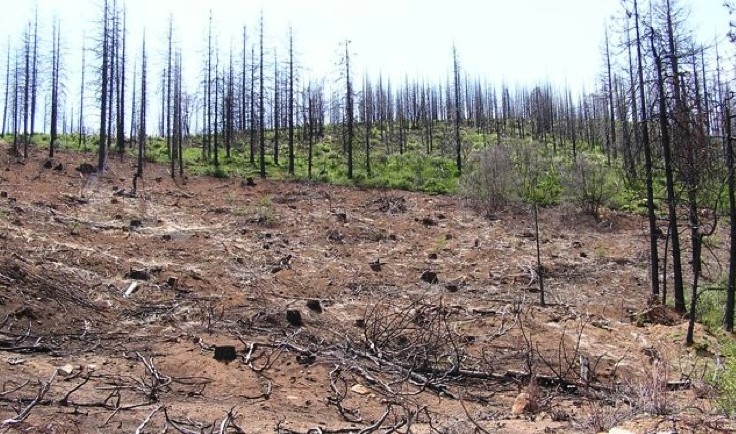In a regional milestone achieved in Nacimiento, the Biobío Regional Council (Core) approved $12.8 billion in public investment to address two critical emergencies: the recovery of areas affected by wildfires and the strengthening of community prevention ahead of a season projected to be especially complex.
The initiatives, driven by Conaf, received broad support from the guilds grouped in Futuro Madera, who highlighted that this decision "marks a before and after" in the State's response towards small and medium forest owners and towards communities living under permanent risk.
Reforestation for Small Owners
The first project corresponds to the FNDR Program for Productive Recovery of Forests Affected by Fires, part of the Biobío Industrial Strengthening Plan. It considers an investment of $9.8 billion and a 36-month execution, aiming to reforest 4,000 hectares of native forest and productive plantations, directly supporting 450 families without the capacity to replant after the disasters. It will also reactivate small and medium pine industries, hit by the inability to restore productive land.
The regional governor of Biobío, Sergio Giacaman, valued the approval, stating that "we voted for projects that address the forest vocation of the region, a vocation that positions us as the lung of Chile. These initiatives seek to support small owners, reforest, and generate productive linkages in the face of damages caused by arsonists and terrorists."
Reactions from the Forestry Sector and Industry
The regional president of Corma, Alejandro Casagrande, celebrated the agreement, maintaining that "these are two great news for Biobío and the forestry sector. Prevention incorporates essential elements that a good Fire Law should contain, and the recovery of burned areas will give a key boost to crisis-hit timber SMEs, promoting pine planting and wood production."
The president of Pymemad, Michel Esquerré, highlighted that the political signal is resounding, as "validating the forestry sector from the productive bases, from the SMEs, is vital. This project is investing today to obtain huge returns in the future, key to reducing the carbon footprint and meeting carbon neutrality goals."
Community Prevention as a Central Axis
The second project corresponds to the Forest Fire Prevention and Mitigation Program, focusing on prevention committees and neighbors, reinforcing Conaf's community model. It will have a budget of $3 billion and regional coverage for 24 months, prioritizing the municipalities with the highest occurrence.
The mayor of Nacimiento, Carlos Toloza, one of the most affected municipalities, stated that in the 2022 and 2023 fires, almost 22 thousand hectares of small owners were burned. This comes to do justice for them and I greatly value it."
Meanwhile, the Regional Director of Conaf Biobío, Esteban Krause, emphasized the comprehensive impact by indicating that "we need the region to recover and regain employment and productivity. The forestry sector is an essential pillar. And in prevention, working with communities is key to reducing the occurrence of fires."
The Futuro Madera Network is composed of the Chilean Biomass Association (AchBiom), the Association of Forestry Contractors (Acoforag), the Guild Association of Native Forest Owners (Aprobosque), the College of Forestry Engineers of Chile (CIFAG), the Chilean Wood Corporation (Corma), and the Small and Medium Wood Industries (Pymemad), thus articulating the main actors of the sector to promote a common agenda for sustainable development and strengthening the forestry world.







Comentarios (0)
No hay comentarios aún. ¡Sé el primero en comentar!
Deja un comentario